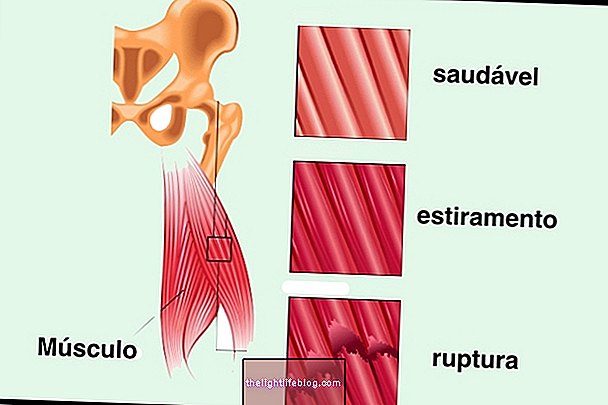Mental exercise for weight loss includes practices such as increasing confidence in one's ability to succeed, identifying obstacles, and thinking about early solutions for them and relearning how to handle food.
This type of exercise has been widely used because overweight is not only caused by overkill in food, but also because the mind fails to control eating behavior, and sabotages attempts at weight loss.

1. Imagine and shape your success
Daily imagine how you will feel after reaching your weight and lifestyle goal. To do this, you must imagine the body, the clothes you can wear, the places you will go to to feel good, and the satisfaction you will feel with your new image, new health and high self-esteem as if it were already something gained .
Doing this exercise will bring great satisfaction to the mind and will create powerful positive emotions that will stimulate new efforts and bring more confidence into the future achievement.
2. Write your wishes
Moving on to desires is an even more powerful way of focusing the mind and strengthening it for conquest. Write down what clothes you will wear, what size jeans you want to buy, what beach you will be wearing in a bikini, what rides you will be doing, what your physical activity routine will be like, and what remedies you will not take when you gain health.
Also write down your daily achievements and how important they are for bringing you closer to the ultimate goal. Each achievement must be seen as one more step to firm change, which must be final.
3. Find reasons to love yourself

Find positive points on your body, from the hair to the shape of the hands and feet. Accept your height and your kind of curves without wishing to fit into patterns of beauty that are completely different from your body structure and genetics.
To admire and imagine the best way for your body is to put real goals in your life, not to seek a perfection imposed by the media and that your body can never conquer.
4. You choose how much you eat
Taking command attitudes toward food is important to get out of addictive routines like attacking a whole bar of chocolate or always eating a dessert after lunch. These command attitudes include actions such as:
- Do not eat the leftovers just so the food does not go to waste;
- Do not repeat the dish;
- Put limits on the amount of treats you will eat: 1 scoop of ice cream, 2 squares of chocolate or 1 piece of pie instead of eating it all at once.
Remember that you decide how much you will eat, and that food will no longer dominate your emotions.
5. Plan exits for obstacles
Predict which obstacles will arise during the weight loss process or over the course of each week. Write down on paper what actions you will take to control yourself on your nephew's birthday, a friend's wedding, or a trip with the class.
Plan how you will continue practicing physical activity during the testing week and what beverage you will drink to avoid alcohol on Sunday's family barbecue. Predicting and preparing for problems in advance is to find solutions that will be put into practice much more easily and effectively.
6. Stop Fearing Food

Forget that chocolate is fattening or that frying is forbidden. In a balanced diet, all foods are allowed, the difference is the frequency they are consumed. Dieting often involves thoughts of restraint, anxiety, and suffering, which predisposes the brain to give up because no one likes to suffer.
Always remember that no food is fattening or slimming, and you can eat everything as long as you find your balance. See the first steps to lose weight with food re-education.
7. Look for alternative pleasures
Your brain does not relax and is satisfied with food alone, so identify and note other sources of pleasure and contentment. Some examples are hanging out with friends, taking a walk outdoors, walking with the pet, reading a book, dancing alone at home, or doing handiwork.
These pleasures can be put into practice in times of anxiety, where the earlier tendency is to eat sweets or order pizza over the phone. Try to force yourself to first take an attitude of alternative pleasure, because then the food will always be in the background.




















